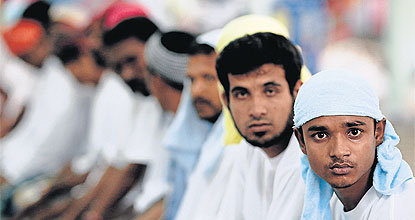
The Asean and Greater Mekong Subregion (GMS) summits were held five weeks apart in Myanmar and Thailand. Both events touted ongoing economic integration efforts for Southeast Asian countries and highlighted connectivity plans to link the entire area with transport routes, energy grids and telecommunications networks.
The Asian Development Bank (ADB), which has shepherded the GMS economic cooperation programme for more than two decades, heralded "inclusive and sustainable development" at the latest GMS summit showcasing mostly transport connection initiatives. While infrastructure is the key word and funds are plentiful for such projects, sadly, very little was mentioned about the potential adverse impacts of these mega-schemes on the environment, social fabric and well-being of local communities.
One area which is being completely overlooked is the likely increase in transnational organised crime, including illicit drug production and shipping, human and wildlife trafficking, the illegal timber trade, smuggling of goods, people and arms, cybercrime, terrorism and money laundering.
While no one doubts the benefits to be gained from a well-knit regional or subregional community — with faster and freer flows of goods, people and services across national boundaries — it is important to recognise the possible downside of such developments, particularly organised crime. After all, criminal networks are expected to utilise the same economic and transport corridors for their own gain.
So while the GDP of the countries within the region or subregion may rise with closer economic integration, the "gross criminal product" — a kind of measure of illegal or criminal trading activity — is expected to increase as well, perhaps even faster than the legitimate economy.
One can wonder if the outcomes of such integrative processes will benefit the crime syndicates more than law-abiding citizens. If this becomes the case, then there are questions about the rationality of undertaking such developmental schemes.
Admittedly, reliable data and statistics on transnational organised crime are hard to come by, and only usually obtainable with some degree of risk. Nevertheless, preliminary information from the United Nations Office of Drugs and Crime (UNODC) indicates that a conservative ballpark figure for transnational organised crime businesses in Asean countries is in the order of US$100 billion (3.2 trillion baht) per year, with drug trafficking accounting for at least a third.
That is no less than the size of the combined economies of Brunei, Cambodia and Laos, and it would overshadow the estimated $30 billion earmarked for priority projects to be implemented under the Regional Investment Framework of the ADB-catalysed GMS programme for the next couple of years. This does not even include the cost of addressing transnational crime.
Criminal elements, who are usually better equipped than the government groups fighting them, are thus often a step or two ahead of law enforcement in most countries in Southeast Asia, including the Mekong group.
In fact, UNODC has already established a cooperative framework among the GMS countries to combat drug trafficking, starting around the same time as the ADB-initiated GMS programme, but which has so far not been very effective in tackling the problem, partly due to lack of sufficient funding.
Interestingly, the ADB signed a letter of intent for cooperation with UNODC in 2006 on topics including drug production and trafficking, anti-corruption and anti-money laundering activities. Somehow not much has happened since then on this front.
Likewise, while Asean has more tangible cooperation with UNODC on transnational organised crime, the degree of collaboration can be more substantive. The key is connecting up the obvious dots with sufficient political will and adequate resources for such purposes.
Many transnational organised crime activities are facilitated by globalisation, integration and mobility, especially in countries where poverty and lack of access to opportunities are prevalent, border controls are lax, corruption is pervasive, and rule of law is weak. Having in place good governance practices with relevant safeguards, along with well-functioning regulatory and judicial systems is essential for curbing such illicit activities.
The Thai justice minister and the Office of Narcotics Control Board admitted recently that Thailand is at the centre of the illicit drug trade in Asean and the battle is becoming even more challenging by the day.
According to Global Financial Integrity's latest ranking, three Asean countries were in the world's top ten nations for illicit capital outflows in the decade leading up to 2012 — a very disconcerting statistic.
Such figures would likely increase with freer movement of capital across the region once the Asean Economic Community (AEC) takes hold from 2015 onwards — unless strict compliance measures are enforced.
So while Thailand may aspire to become the logistics and transport hub of the region after AEC, it is also sobering to think that the country is already serving as a source, transit and destination for much of the region and subregion's transnational organised crime activities. It would be good to have a comparative assessment of how the magnitude and rate of change of the Gross Criminal Product fares against the Gross Domestic Product for Thailand and the surrounding countries in the foreseeable future.
It would also be useful to get a sense of who the winners and losers are in this integration framework, over time, in terms of places and population groups.
There is an urgent need to be able to speak with some degree of confidence about the overall benefit and cost of developmental initiatives such as regional integration, and whether disparities in all their various forms have been adequately addressed.
Only then can there be reasonable assurance that development is proving to be a virtuous rather than a vicious circle and truly "inclusive and sustainable" to the ultimate intended beneficiaries — the ordinary law-abiding citizens of the region.
Apichai Sunchindah is an independent development specialist.
